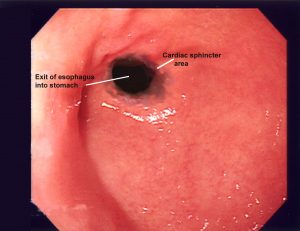Why Does My Ferret Have Vomiting Or Diarrhea Issues?
Ron Hines DVM PhD

Digestive tract issues are common in ferrets. The most common ones I see are related to eating household objects and foods that do not agree with them. Ferrets are very spontaneous and curious animals. The feel and size of an object is as important to them as its taste and smell. It is young adult ferrets that are particularly likely to eat things around the home that they shouldn’t; but even older ones that never showed that inclinations before can suddenly get the urge to do so. When those objects are very small pieces of rubber foam, cardboard shreds, erasers, latex, Styrofoam, etc., they generally pass through the pet with no more than indigestions. But larger objects, multiple objects, stringy objects and large amounts of indigestible material of any sort are a medical emergency. When you are lucky, a check about the house locates what has been shredded and eaten. The soft buttons from cell phones and calculators are another choice item.
Not finding that evidence is not a guarantee that nothing dangerous was swallowed. There can be long time lapses between the time the material was eaten and the time the object or material manages to move out of the stomach and into their intestine. Blockages of the intestine can lead to death in ferrets in 1-2 days – particularly when the blockage leads to large amounts of gas (bloat). Dried or fresh fruit also presents a blockage problem because ferrets were not designed to digest plant material.
Suspicious signs of something having been swallowed are erratically passed stools, loose stools, straining, stools containing mucous or blood, and stools that are off color, greenish or tarry. Stools that are a smaller diameter than normal are also a common warning that the ferret’s intestine is partially blocked. Vomiting, weakness, decreased appetite, decreased weight, dehydration, nausea – any of those signs are cause to visit your veterinarian. Sometimes your veterinarian will be able to feel these objects through your pet’s tummy. In any case, an x-ray – often taken after giving the pet liquid barium – usually detects foreign material in the pet’s digestive tract.
When intestinal obstruction or the threat of intestinal obstruction is confirmed, the recommended treatment is generally surgery to remove the material.
In older ferrets, particularly those with hair loss, fur balls can produce similar signs. Those cases can often be managed with more frequent brushing, feline fur ball remedy or even a bit of Vaseline periodically placed on the pet’s paws. I have seen hair loss due to fleas. But it is not unusual for older ferrets with this problem to have underlying health issues such as lymphoma, IBD or an enlarged spleen.
When you take your ferret with a digestive tract issue to your veterinarian, always bring plentiful samples of the pet’s stool that you can locate. Your vet’s nurse who is experienced with ferret health care will give you more specific instructions.
A sample of any vomit that can be located is important for your veterinarian to see too. It is often foamy. But mucus or blood within the vomit is evidence of stomach or esophageal lining irritation and, occasionally, small ruminants of the material that caused the problem will be seen grossly or under a microscope.
Coronavirus Infection
Ferrets are susceptible to a coronavirus similar to the one that affects cats. If the cat coronavirus mutated in a way that made ferrets susceptible to it, or if it always existed as a separate virus in the mustella (weasel) family is something veterinarians do not know. As in cats, the virus is capable of producing transient gastrointestinal inflammation that can include vomiting and diarrhea. That problem usually resolves with supportive care or no treatment at all. In this form, it is often called Green Slime Disease (=Epizootic catarrhal enteritis =ECE). But it is believed that the same virus is also capable of mutating into a fatal disease that affects tissues throughout the entire body. The virus is then referred to as Ferret Systemic Coronavirus (=FRSCV = “Ferret-FIP”). A similar disease, FIP, affects cats. As far as we know, cats cannot infect ferrets and ferrets cannot infect cats. The age at which your ferret became infected with coronavirus seems to be an important factor in influencing symptoms and outcome. Those ferrets infected young usually never show symptoms while ferrets that first encounter the virus later in life are much more likely to. Early signs of an infection with either form of the coronavirus often include diarrhea and vomiting. Read more about Ferret Coronavirus here.
Bacteria and Toxins
Because of ferrets inclination to eat things that they shouldn’t, they have the potential to swallow a large variety of toxins and potentially harmful bacteria. One of those is Campylobacter jejuni which is a threat to humans as well. Read more about that problem when the bacteria are experimentally given to ferrets here.
Helicobacter mustelae
Helicobacter mustelae bacteria seem to be a very common inhabitant of the first segment of the intestine (duodenum) and stomachs of ferrets. (read here & here) Because these bacteria inhabits the digestive tracts of so many healthy ferrets, it is thought that mother ferrets pass it to their offspring very early in life and that most ferrets tolerate the bacteria’s presence. The same is the case with the helicobacter that inhabits humans. (read here) Most ferrets that carry helicobacter mustelae show no signs of illness. But some, particularly after stress, begin to vomit and pass black tarry stools accompanied by general signs of illness and listlessness. Recovery usually occurs when the ferrets are given oral products to coat and protect the linings of their upper digestive tract along with antibiotics and products that increase stomach pH. (read here)
Tooth & Mouth Issues
As ferrets age they are subject to periodontal disease at a faster rate than dogs and cats. Tartar builds up, irritates their gums and causes the gums to recede. When that occurs, the pet’s breath odor tends to get stronger and its saliva to become sticky and stringy. When your older ferret begins to show less interest in its food and loses weight, its teeth and gums are the first things that need to be checked. Although vomiting due to oral problems can occur, it is only an occasional ferret that will display (show) that. It is also common for gum disease, including tooth tartar and receding gums, to accelerate as the result of kidney or liver disease. Those situations can also lead to oral ulcers. The general decline caused by cancer and the medications used to treat it can lead to oral ulcers as well. Read more about tooth and mouth problems in your ferret here.
Inflammatory Bowel Disease – IBD
Inflammatory Bowel Disease (IBD) is a general inflammation of your ferret’s digestive tract whose specific cause or causes are still unknown. There is little doubt that the chronic intestinal inflammation associated with IBD can be triggered by many things. Some associate it with misdirected antibodies produced by the ferret’s own immune system. Others with food allergies and sensitivities. Still others associate IBD in ferrets with diets that contain too much carbohydrate. Individual genetics is probably a factor as well. Ferrets are often ~ 2 or 3 years old when their digestive tract symptoms such as loose stools, diarrhea, poor appetite and weight loss begin. A few of these ferrets vomit as well. Read more about IBD in ferrets here.
Lymphoma
Lymphoma is a type of cancer. The cells that compose this type of cancer are mutated lymphocytes, one of the cells of your ferret’s immune system. Lymphoma is a relatively common disease in older ferrets. When a clone of lymphocytes becomes cancerous, the mutated cells are often found in high numbers within the walls of the pet’s intestine (but they can occur in any organ). Some believe that this type of lymphocyte mutation occurs subsequent to the chronic irritation of the ferret’s digestive system caused by inflammatory bowel disease (IBD). In fact, it can be quite hard for a pathologist, looking at a biopsy tissue sample from your ferret, to differentiate between IBD and an early case of lymphoma. High numbers of lymphocytes within the intestinal wall are usually present in both diseases. It is a judgment call based on changes in lymphocyte appearance that determines which decision your pathologist makes. When your ferret’s stomach and/or intestines that are the primary site of lymphoma, weight loss, diarrhea, abnormally shaped stools and vomiting are all possible symptoms. Read more about lymphoma in ferrets here.
Coccidiosis
Almost every species of animal is susceptible to a protozoan parasite, coccidia, that inhabits cells lining their intestinal tract. Humans do not have their own species of coccidia, but we are susceptible to two close relatives of coccidia, cryptosporidium and toxoplasma. Both crypto and toxo are indifferent to which animal species they infect. The most common coccidia associated with illness in ferrets is Eimeria furonis. That particular coccidia does not appear to affect humans, dogs or cats. Many ferrets harbor these coccidia and others (there are 4) living within the cells that line their intestines. But generally the ferret’s immune system keeps parasite numbers so low that they produce no disease. Those numbers of coccidia parasites in healthy ferrets are so low that their infective stages (oocysts) are unlikely to be picked up on your veterinarian’s microscopic stool examination. Yet when a ferret is under stress from another disease, overcrowding, poor sanitation or inappropriate diet, its immune system may no longer be able to keep the parasite’s numbers in control. In those cases diarrhea and dehydration develop. Most ferrets get over this with proper care and general veterinary support. However, they are probably never entirely free of the parasite. So under the right conditions; recovered pets can spread the coccidia to other ferrets. Signs of a significant infection are diarrhea (which may be intermittent & bloody), poor appetite, weight loss and dehydration. Read more about the coccidia of ferrets here.
Rotavirus
Ferret Rotavirus Type C has been isolated from infant ferrets with diarrhea. Because of the pup’s small size, the dehydration caused by this virus is often fatal. (read here)
Giardia
Giardia parasites are also not particular as to which species they infect. So ferrets can become infected. The giardia organisms (another protozoan) are associated with poor sanitation or the consumption of contaminated water. The main symptom of giardia (giardiasis) in all species is diarrhea and abdominal distress. Because this parasite is not particular about which animal it inhabits, a ferret carrying giardia can transfer it to you and vice versa. Be hygienic. Think twice about allowing human infants to interact with ferrets – especially small children or those with chronic health issues. Giardia thrive in any degraded intestinal environment. So, the fact that giardia are seen in your ferret’s stool is not proof that the organism is the underlying cause of the diarrhea. When present, custom-formulated (“compounded”) metronidazole is usually the medication of choice.
A vitamin A Deficiency?
There was a 2007 report from McGill University that a lack of sufficient vitamin A in ferret diets causes diarrhea, cataracts and behavioral changes in ferrets. You can read that article here. The best natural sources of vitamin A are egg yolks and liver. Too much vitamin A in capsule or injectable form can be toxic.
Megaesophagus As A Cause Of Vomiting
Veterinarians have described a condition in ferrets called megaesophagus. I have never seen a case in a ferret. Megaesophagus is usually caused by a dysfunction of the nerves that stimulate the pet’s esophagus to contract in waves to pass food along to its stomach. But similar situations where a bolus of food obstructs the esophagus can be due to scars (strictures) obstructing the free passage of food through the esophagus or dysfunction of the valve that is present between the esophagus and the stomach:
Ferrets with this problem maintain their appetite, but they vomit about 5-10 minutes after eating. Consequently, they lose weight. The cause of this group of diseases is unknown. There is no cure, but some cases do well when the pet is fed a slurry or semi-liquid diet. After meal massaging food down the neck and toward the stomach or holding the ferret vertically after a meal can also be helpful.



